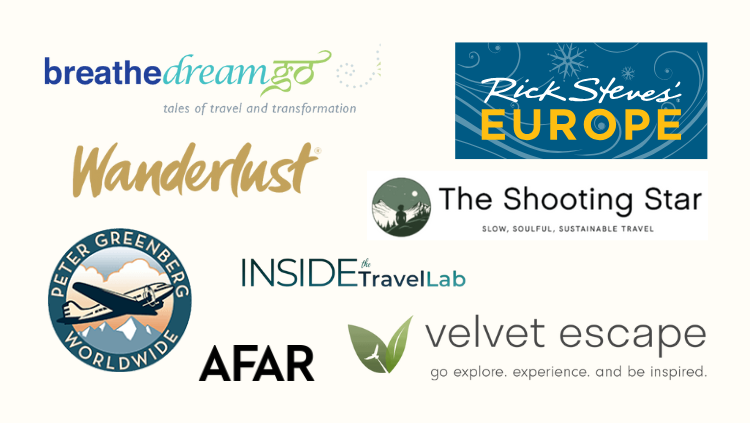
Does AI technology produce fake intelligence or real intelligence? Unfortunately, it can do both. The challenge is how to determine whether what you're reading is information of value or the result of AI tools scraping data indiscriminately from the worldwide web–which, as a whole, is only somewhat reliable. When researching for a solo trip, how do you know if the information you are getting is from active, current, trusted travel resources or is outdated, incorrect, untrustworthy junk (or worse)?
What Is Artifical Intelligence?
Talk of AI is everywhere. But what is it, exactly? Here is a definition from Google:
Artificial intelligence (AI) is a set of technologies that enable computers to perform a variety of advanced functions, including the ability to see, understand and translate spoken and written language, analyze data, make recommendations, and more. Source.
It encompasses everything from self-driving cars to factory assembly line robots to the chatbots we interact with when trying to access customer service on company websites.
And then, there's ChatGPT.
What is that, exactly? I went to the ChatGPT site and asked it, “What is ChatGPT?” Here is the response:
ChatGPT is an advanced language model developed by OpenAI. It uses a form of artificial intelligence (AI) called natural language processing (NLP) to understand and generate human-like text based on the input it receives. The model is trained on a large variety of data from books, websites, and other textual content to learn how language works and can provide responses in a conversational manner.
If you use ChatGPT for travel information, you might want to ask it “What are some of the problems with using AI for travel planning?”. The problems are many and varied.

Why They Can't Be Trusted as Travel Resources
Some people are turning to ChatGPT as an alternative to Google when doing travel research. The problem is that you don't know where ChatGPT is scraping the information from. At least with Google, the source is clear.
Then there's the problem with Google's role in our travel resource anxiety. Have you noticed that Google is serving you Reddit and Quora threads in your search results more commonly than ever before? These are platforms for people to express opinions, some of which are well founded but others are not. I never use either site as a resource no matter what information I'm seeking. On top of that, many of these threads are years old.
Plus, Google is upping their use of AI in search results.
There are also websites that look great but are produced quickly using AI for nefarious reasons. We know of at least one site that is stealing our content, stripping out our personal experiences, then running our articles through ChatGPT and republishing them as their own. And there's nothing we can do about it.
There are even blogs that have been around a long time, that are now using ChatGPT to produce articles rather than their own research. In our opinion, it's lazy and does a disservice to readers.
“Booking.com reports a staggering 500% to 900% increase over the past 18 months in travel scams. AI technology is at the center of this alarming trend, empowering fraudsters with increasingly convincing tools. People are taking notice, too. More than one out of three Americans say AI and deepfakes lower their trust when planning and booking vacations, according to McAfee.” Source
So, what's a traveler to do? Below are a few tips and links to our most trusted travel resources. Yes, Solo Traveler is on the list for two reasons:
- We don't use AI to produce any information we share.
- We have Tracey who edits and fact checks what we publish.
As per Seth Godin, it's on us to bring back quality resources. “To bring back who do we trust, why do we trust them and how do we create an environment that there's an incentive for them to remain trustworthy.” (Source)

Our Trusted Travel Planning Resources
Below is a list of resources which we believe deliver reliable, well-researched and edited travel information.
To begin, as might not be a surprise to you, we would like to add ourselves to the list. Solo Traveler has been publishing for over 15 years. And while many of you know Tracey and me, many do not. We have tried to put the community forward more than ourselves, publishing readers stories and information pulled together with the help of the Solo Travel Society on Facebook. Those articles, like all on Solo Traveler, are meticulously edited and fact-checked by our editor, Tracey.
- Solo Traveler
- Articles published twice a week specifically for solo travelers.
- Free newsletter subscription which includes 4 emails per month and the occasional Dealsflash from an advertiser. Important news relevant to solo travelers and our full advertiser list of trips specifically for solo travelers. You can sign up for our free service here.
- Tracey's Shortlist of Trips for Solo Travelers is a special service. She reviews over 100 trips every month to come up with what she considers to be the best deals and most exciting travel opportunities for solo travelers every month. She scrutinizes them carefully. You can sign up for Tracey's list here. (As subscription numbers grow, we'll be able to afford to begin turning off the annoying ads between paragraphs on posts like this one.)
- Traditional media that don't have paywalls
- AFAR Magazine – Tracey frequently shares links to useful articles from US-based AFAR in our newsletter to help you stay up to date on travel news.
- Wanderlust Magazine – One of the UK's leading travel magazines, Wanderlust has been around since the 90s.
- Experts we respect and know to be trusted travel resources
- Inside the Travel Lab I've known Abi King since 2010 and she is incapable of publishing anything but quality. Follow her here.
- The Man in Seat 61 If you're interested in train travel, this is the site for you. Mark Smith's site answers just about any question you could have about train travel almost anywhere in the world.
- The Shooting Star Shivya Nath is our go-to expert on sustainable travel. Solo traveler, author, environmentalist, and founder of Climate Conscious Travel, she shares thoughtful stories, tips and advice on her blog, which you can find here.
- The Velvet Escape Keith Jenkins is a warm, always enthusiastic person who I met in my first month working on Solo Traveler. He's innovative and always focused on quality. Read Keith's work here.
- Breathedreamgo Mariellen Ward is an expert on India and helped me with my trip there. She's a beautiful writer and very careful with the information she shares.
- Rick Steves Rick is an icon in the travel guidebook industry. Watch, read, and listen to him for reliable information on Europe. He also has a forum with travelers sharing information. I would be more careful when reading the forum.
- Peter Greenberg Peter is known in the travel industry as “The Travel Detective”. He is the Travel Editor for CBS News. Read Peter Greenberg Worldwide here.

Tips to Protect Yourself from Travel Scams
As mentioned above, AI has increased the number of travel scams dramatically. My purpose here is not to give you everything you need to know, as there is a lot. But here are five important bits of advice for you.
- Check the spelling of the address in your browser (URL). You may think that you are on booking.com's website but the URL could be bookking.com. A small typo can put you on a look-alike site to take your money while making you think that you are all booked.
- Be cautious with emails. AI has made creating phishing emails easier. Step 1: Look at the source of the email. Do you know it? Step 2: Are they asking you to click and enter your account or any personal information? This is a red flag. If you think it's legitimate, to be safe, go to your account through your browser, not by clicking in the email.
- Be careful with chatbots. Hackers collect bits of information from multiple sources to get you. Chatbots on legitimate-looking, scam sites are collecting information from people on a regular basis. One tiny bit of information could be the last piece of the puzzle for them.
- Verify reviews. In 2023, Tripadvisor deleted over 2 million fake reviews. The number is not yet out for 2024 but I'm sure it's not lower and I'm also sure that keeping up with the scammers is not easy.
- If the deal is really great… Scammers prey on our love of a good deal and by making the deal time sensitive. Verify the source before buying.
For when you're on the road, you might want to read How to Avoid Pickpockets and Protect Your Valuables.

A More Personal Scam Experience
Simon, my husband and the guy that sells advertising to real travel companies who offer tours with no or low single supplements, received a call which was apparently from his airline saying that he had not confirmed a flight change. For them to get him back on his travel schedule it would cost $750.
Who knows how they got the details of his flight number, time of departure, etc.? It all married up except the notion that there had been a flight change without his notice. The pressure to take care of this with only a few days to go before his flight was great.
If anything like this happens to you, STOP. Go into your account or call the airline with the number on your flight confirmation email.
You can find more of our trusted travel resources in this article: Trip Planning Tools: What We Recommend & How to Use Them.
